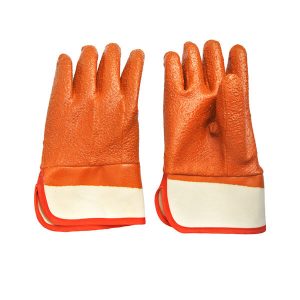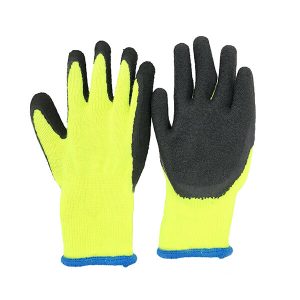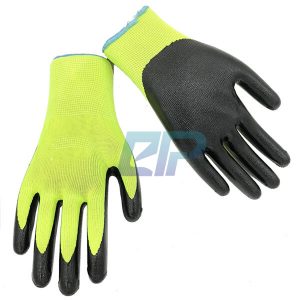Nitrile gloves are disposable gloves that are alternatives to traditional latex gloves. Made from nitrile rubber material, the same material used for other products like gaskets, oil seals, and automotive belts, this material is known for its sturdiness.
Through the combination of butadiene and acrylonitrile, nitrile, a form of synthetic co-polymer is created. Contrary to popular belief, it still comes from rubber trees, the same trees used to make latex gloves. But unlike latex gloves, they go through extra processing where the latex proteins are removed.
When they were first introduced in the market, nitrile gloves were so expensive that average consumers couldn’t afford them. However, manufacturers found a way to reduce the expense by employing more effective production strategies. With modern manufacturing methods, these gloves have become more affordable and cost-effective. And because of the absence of latex proteins, these gloves offer low allergy rates.

What Are Nitrile Gloves Used For
It has a wide application in different industries due to its non-complex production process. Many factories find that it is cheaper and simpler to produce nitrile gloves because the machines needed are not difficult to get.
Because nitrile gloves are devoid of latex, many people prefer using them. There are also plenty of gloves out there boasting durable features such as puncture resistance, good ergonomics, and excellent dexterity. The gloves of nitrile don’t rot or deteriorate easily as well, so they can be stored for a long time. Industries that handle chemicals and infectious materials can also rely on gloves as primary protection.
Nitrile gloves are widely used in a variety of industries that require protection against oil and chemicals, such as housework, the electronic industry, the chemical industry, food processing and so on. In addition, they are also widely used in medical, health and beauty salon industries because they do not contain protein and do not cause skin allergies.
Do Nitrile Gloves Cause Cancer?
Not all nitrile gloves are created equal and every country has its list of ingredients that are deemed unsafe. In the U.S., for example, The gloves of nitrile that are Prop. 65 Compliant are safer to use. The Prop .65 list is a list of chemicals that are considered harmful and carcinogenic. One of these chemicals is MBT or 2-Mercaptobenzothiazole. It was recently added to the list.
Used as an accelerator in making nitrile gloves, it is supposed to make gloves more flexible and pliant. But do check what you are buying. Manufacturers will list down the materials they used for making the gloves.
Nitrile vs Latex Gloves
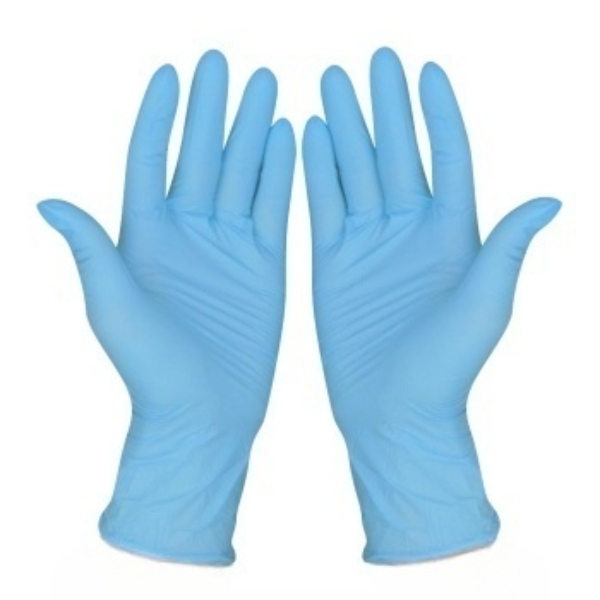
Latex gloves are just as natural as nitrile gloves since they are made from the same base material, which is rubber. Latex gloves are preferred by many industries due to their excellent fit. It is made to feel like you have a second skin. It is preferred in medical and industrial applications.
It is slightly less expensive than nitrile gloves but might not offer the same level of protection to your hands when it comes to chemicals and infectious materials as nitrile. However, unlike nitrile gloves, it is biodegradable.
If you prefer better hand sensitivity and resistance to chemicals and punctures, nitrile gloves would be a better choice. However, if you are on a budget and you want something cheaper, latex would work better.
Nitrile vs Vinyl Gloves
Just like Nitrile, Vinyl gloves are also free from latex that can cause allergies. However, unlike nitrile, these gloves tend to be larger and have a looser fit. They are not ideal for long-term tasks or activities that will require you to wear gloves for an extended period. Vinyl gloves are generally recommended for short-term work and work that isn’t too risky since they don’t provide as much protection as nitrile gloves. If you need the utmost protection for your hands, you are better off choosing gloves of nitrile.
Nitrile Gloves FAQ
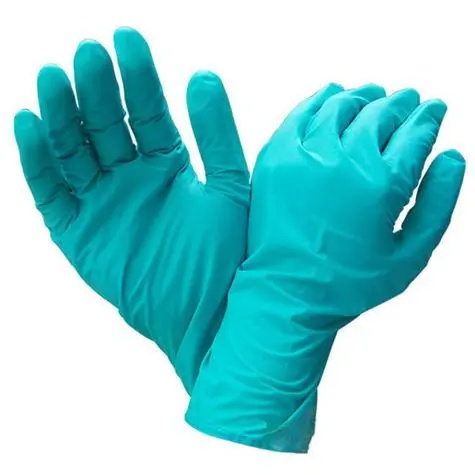
Are The Gloves Latex Free?
Yes, nitrile gloves are latex-free. Although they are also made from rubber, they go through an extra manufacturing step that extracts the latex proteins. They have an allergy rate of only 1%, significantly lower than that of latex gloves.
Is It Possible to Get Nitrile Gloves Allergy?
Although The gloves of nitrile are devoid of latex which can cause allergies, there may be some components in them that can trigger an allergic reaction. Some manufacturers include chemical accelerators in their recipes. These are the ones that can trigger allergies. But there are a lot of good manufacturers out there that don’t use accelerator chemicals. If you want to reduce the chances of suffering from allergies, you should look for manufacturers that don’t use these accelerator chemicals. Their products have an almost zero per cent allergy rate.
What is the difference between Nitrile and Vinyl Gloves?
Vinyl gloves are not as elastic as nitrile gloves. They also have poorer mechanical resistance, which means they are more likely to break compared to gloves of nitrile. Even just a slight pressure from your fingers can cause vinyl gloves to break.
On the other hand, vinyl doesn’t contain chemical accelerators that are present in some gloves of nitrile. This is why they are completely allergenic.
Are Nitrile Gloves Toxic?
Nitrile material is generally nontoxic. You can find food-safe nitrile gloves. However, they should be used properly. For instance, you should only use gloves of nitrile that are intended for food handling. If you use nitrile gloves for other applications when handling food, that can lead to toxicity.
Vinyl vs Nitrile Gloves for Food
Nitrile gloves, the food-safe kind, are superior to vinyl just because vinyl tends to break easily. They are more likely to incur damage such as small holes when used for extended periods. They also have a higher level of permeation from pathogens like viruses and bacteria and have poor resistance to common chemicals.
Do you want to know what’s the difference between nitrile, latex and vinyl gloves? To learn more about them, you can click here:
What’s The Difference Between Nitrile, Latex, and Vinyl Gloves?


